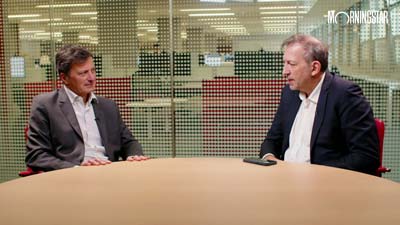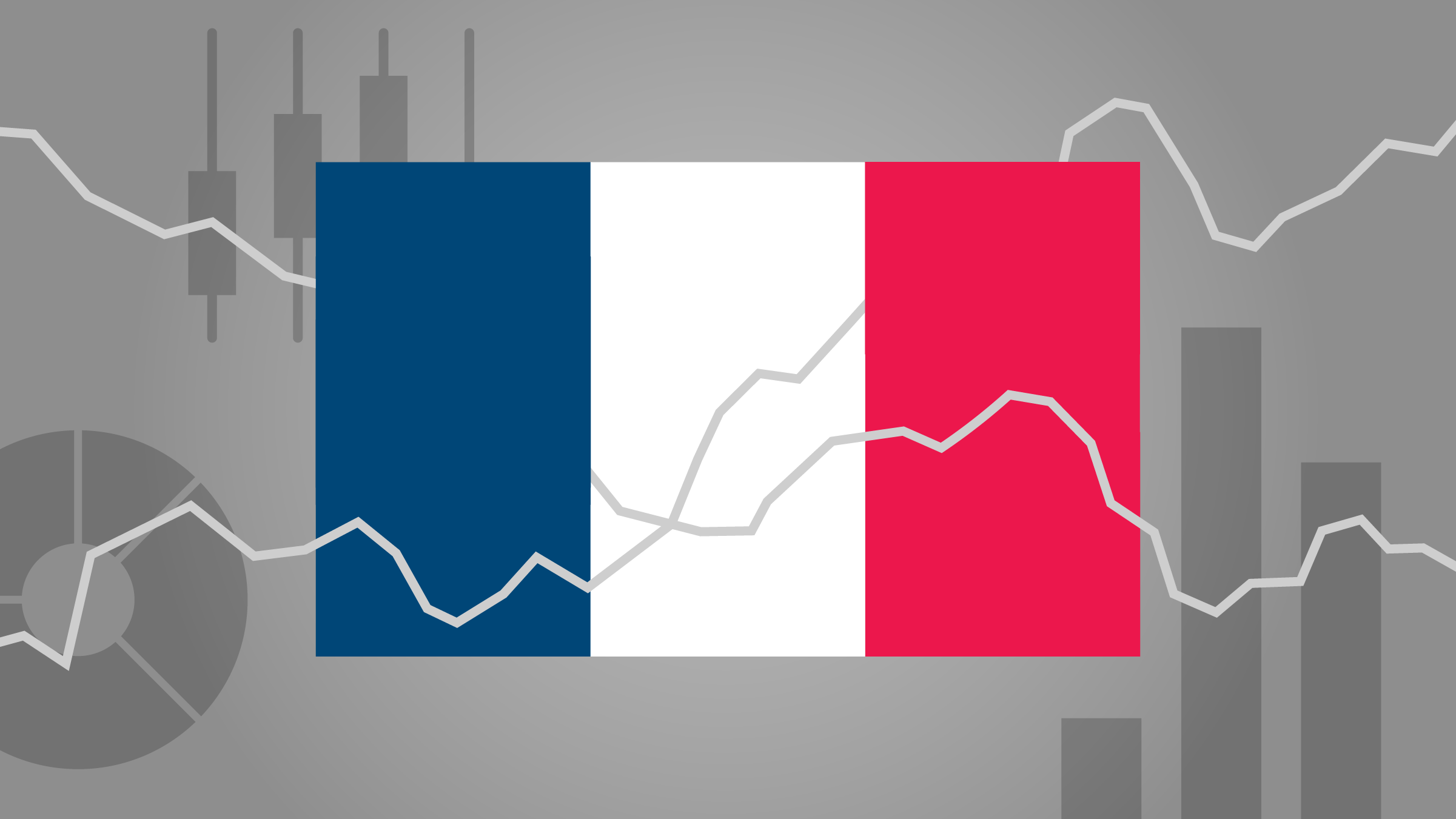TRANSCRIPT
Christine Benz: Hi, I'm Christine Benz for Morningstar.com. It's Income Investing Week on Morningstar.com. Joining me to discuss the role that bonds can play in income-centric portfolios is Sarah Bush. She is the director of fixed-income manager research for Morningstar.
Sarah, thank you so much for being here.
Sarah Bush: Thanks for having me, Christine.
Benz: Sarah, let's start with the thing that is top of mind for so many investors. We've been waiting for the Fed to take action on interest rates, and now there appears to be some momentum behind the idea that they will actually do so later this year. I know your job isn't to handicap what the Fed might do, but what's the general sentiment about whether the Fed will begin to raise rates in December and how much of a rate increase that might be?
Bush: In contrast to what we were seeing earlier this fall, I think that the markets are now predicting a higher likelihood of a Fed increase--something on the order of maybe a 66% chance or two thirds. It depends a little bit day to day on what kind of data comes out. That's what we're hearing as well from a lot of the managers that we talk to; there is a pretty reasonable likelihood that the Fed will act in December.
The interesting thing, though, is that I don't think anyone is expecting a large hike. I think everyone is talking about 25 basis points. I think the expectation is that the Fed will also continue to move slowly into 2016.
Benz: One thing that some investors might not realize is that the bond market begins to anticipate this kind of action and we start to see yields move around a little bit. What are you seeing when you look at bond performance recently in anticipation of this potential rate increase?
Bush: If you look at the last month and a half--the post-September, post-third-quarter period--we've actually seen a rise in yields across the yield curve. I think some of that is the anticipation at the short end of the yield curve that the Fed is going to act. Then, other parts of the yield curve are reacting to economic news out there and some more-positive numbers around jobs. So, there's a variety of things driving that, but we have seen kind of a rise rates across the board.
Benz: So, that tends to depress bond prices when we see yields go up. I think a lot of investors think, "OK, is this the time that I should jump out of bonds because we are going to see prices go down from here?" What's your take on that question?
Bush: It's an interesting question; we've been getting it for several years now.
Benz: Five years maybe.
Bush: Everybody has been waiting for the Fed to act and for bond yields rise. We've had some periods where there has been some volatility in the bond market. I think, usually, my answer to that is very much that what the market is expecting in terms of a Fed increase and economic growth is priced into the market. I think it can be very difficult for individual investors--and even for professional investors--to time changes to their bond allocations based on where they think interest rates are going to move in the short run. So, while I don't discount the possibility that we could see a continued rise in interest rates and yields across the yield curve, I think it's very difficult for investors to get that timing right. And I think the other question people need to be thinking about is what are you holding the bonds in your portfolio for? And for a lot of investors who are holding bonds for diversification purposes from the equity markets, those bonds should continue to play that role and the future is unknown, so they are still important in that way for portfolios.
Benz: And higher yields, if you're a long-term investor, can actually be a positive thing?
Bush: That's one thing that we obviously try to point out. It's true that as bond yields rise, prices go down--it's a basic mathematical fact. But yields do take the bite out of that. And certainly, as yields rise, they take the bite out of those losses, especially if you spread it out over the course of a couple of years. Then, going forward, a long-term investor should want to see higher yields on bonds because that's where your total return is ultimately going to come from.
Benz: You mentioned before we got started that some more-credit-sensitive bond types actually perform reasonably well in periods when rates rise--the bond prices actually behave pretty well during such periods.
Bush: Yes, certain asset classes are more credit-sensitive and more sensitive to the overall economy and, therefore, are going to do well if the economy is strong. So, if the Fed is raising rates and bond yields are rising because the economy is relatively strong, you might actually see those types of bonds perform better and be a safer haven in that type of environment. It depends. There are some open questions around that; but in general, thinking of high-yield bonds, that's an asset class that you would expect to do relatively well in a stronger economy.
Benz: You touched on very recent performance since we've had this sentiment out there that the Fed would probably act, or may act, later this year. But let's take stock of the whole year because things have been moving around really quickly. You and I have talked in the past about these periods of risk on and risk off. Where are we when you step back and look at the whole year in terms of investor preferences and what has done well and what has not done so well?
Bush: I was here talking to you not too long ago about the third quarter when we had a big risk sell-off; then in the last six weeks or so, we've seen a big bounceback. High yield has done relatively well, but Treasuries have done poorly. It's kind of an interesting year, actually, because it's been a difficult environment for fixed income overall and nobody is getting really incredible returns out of any part of the fixed-income markets. Long Treasuries are actually down year to date, once you take all those swings back and forth into account. Local-currency emerging markets has also been a pretty weak area. Munis have done well, interestingly. And actually, U.S. dollar emerging markets has been a relatively strong performer. So, there have been some interesting stories.
I think another thing that people have definitely been paying attention to is that high yield has had its troubles over the course of the year--especially when you look at funds with large allocations to the energy sector, which has been particularly hard-hit. But there's been a little bit more of a dispersion when you cancel out all those ups and downs in terms of where the performance has come from.
Benz: Finally, I'd like to get your advice. A lot of investors who are in bonds are looking to them for current income; that tends to be one of the key roles that bonds play for investors. What's your counsel to investors about how to balance that quest for income with total portfolio diversification? Do you have any guidance on how much weight to put on a fund's yield or a bond's yield when making portfolio-level decisions?
Bush: It's been a very difficult environment, I think, for a yield-seeking investor just because yields have been so low across the board. So, it's certainly understandable that people are going to look to certain asset classes--high-yield is one that comes to mind as well as emerging markets--where there is more yield and to be enticed by it. But I think it is really important to realize there is no free lunch and that yield is coming for a reason. In some ways, it's easier to have these conversations this year because we have seen that volatility come through in certain parts of emerging markets and also in high yield. So, I think as you look at your portfolio and if you're looking for diversification, the core higher-quality bond funds are going to do a better job of that. Then, if you're also going to hold emerging markets and high yield in smaller portions--or other more yield-y sectors--I think you really just want to make sure that you have the risk tolerance to hold them through some of this volatility because you have to be able to do that if you're going to get the best returns out of those sectors.
Benz: Valuable guidance, Sarah. Thank you so much for being here to share your insights.
Bush: Thanks for having me, Christine.
Benz: Thanks for watching. I'm Christine Benz for Morningstar.com.





















